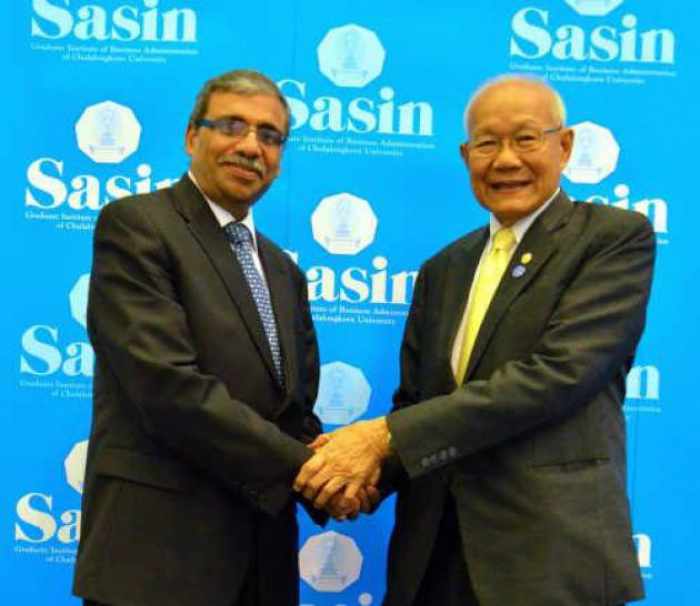New dean pledges to start new chapter at Sasin

PHUKET: THE NEW DEAN of the Sasin Graduate Institute of Business Administration, Dipak C Jain, wants to turn the institution into a top business school in Southeast Asia, one that is Asean-focused and driven by some of Thailand’s core strengths.
The highly respected educator caught the business school world by surprise when he announced on July 7 that he had been appointed the head of the Bangkok business school, which has failed to make the rankings as one of the world’s top business schools.
“It is my duty. This is a special place for me,” said Jain in an exclusive interview with The Nation at Sasin.
Jain has been teaching at Sasin as a visiting professor since 1989. He was personally invited by Her Royal Highness Princess Maha Chakri Sirindhorn to become dean when she was in Chicago last September.
Born in Assam, India, Jain served as dean of Northwestern University’s Kellogg School of Management in the US from 2001-09 and was dean of Insead, a top European business school, from 2011-13.
Illness led to his resignation at Insead, where he remains chaired professor of marketing.
Jain wants to turn Sasin into one of the best business schools in Asean by 2017, which means becoming a good source of talent for local and multinational companies operating in or looking to invest in the region.
The school must also be attractive to students from other Asean nations and regions. At present, up to 85 per cent of MBA students at Sasin are Thai.
“Let’s start the second chapter at Sasin. We must expand to reach more candidates from outside Bangkok and Thailand,” Jain said.
He said his challenge was to establish a clear “differentiation plan” for Sasin and to implement it successfully in the face of stiff competition in the business education market, the global economic situation and the “geopolitical mindset”.
Jain hopes that by focusing on Asean, Sasin can carve out a niche while leveraging Asean and Thailand’s key strengths in manufacturing, hospitality, healthcare and wellness, and social responsibility.
He also wants to set up a center of excellence for family businesses at Sasin and a center for innovations, in addition to the center for entrepreneurs that was recently established.
Jain said he would discuss with Philip Kotler, a world-famous marketing guru who is his former colleague at Kellogg, his aspiration to move the annual World Marketing Summit to Bangkok.
He said Sasin’s new Phuket campus, slated to open next year, could help the institute meet its goal of attracting more international students.
He would meet Somkid Jatusripitak, an economic adviser to the National Council for Peace and Order, and Thai corporate leaders this week to share his Sasin plan and get their reactions before presenting his final draft of the plan to the Sasin alumni on Sasin Day on September 15.
Jain has succeeded Toemsakdi Krishnamra, who founded Sasin and led the school of management for the past 32 years, becoming one of world’s longest-serving deans.
The National University of Singapore Business School and the Nanyang Business School in Singapore were the only Asean institutions included in the Financial Times’ top 50 business schools in the world in 2014.
Insead, which has a campus in Singapore, was ranked No 5.
— The Nation
Latest Thailand News
Follow The Thaiger on Google News:


























